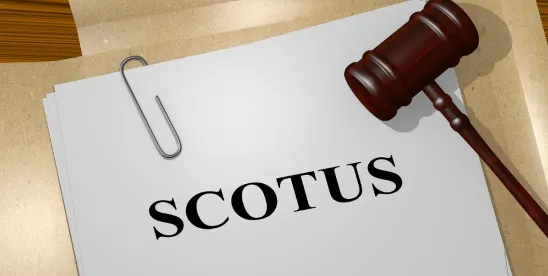On May 16, 2024, the Supreme Court reversed a Fifth Circuit decision which held that the funding for the Consumer Financial Protection Bureau (CFPB) violated the Appropriations Clause. This case was viewed as pivotal to the ability of the CFPB to continue to make and enforce rules, and otherwise carry out its agency powers. By finding for the CFPB, the Supreme Court has strengthened the CFPB’s rulemaking abilities.
In an opinion joined by six other Justices, Justice Thomas explained that Congress, through the Dodd-Frank Wall Street Reform and Consumer Protection Act, authorized the CFPB to be funded through the earnings of the Federal Reserve System, subject to a cap. While this may not match the funding process most federal agencies go through, Justice Thomas explains that:
Under the Appropriations Clause, an appropriation is simply a law that authorizes expenditures from a specified source of public money for designated purposes. The statute that provides the Bureau’s funding meets these requirements. We therefore conclude that the Bureau’s funding mechanism does not violate the Appropriations Clause.
The Court relied on the Constitution’s text, historical dictionary definitions of the term “appropriation,” and early congressional practice in reaching its decision. Justice Kagan filed a concurring opinion joined by Justices Sotomayor, Kavanaugh, and Barrett. Justice Jackson also filed a concurring opinion.
Justice Alito filed a dissenting opinion, joined by Justice Gorsuch, which argued that the funding statute for the CFPB allows the CFPB to operate “without any congressional control or oversight,” and argued that the Court misinterpreted the Appropriations Clause. The practical effect of the Court’s decision is business as usual for the CFPB.
Jacqueline Beveridge also contributed to this article.






 />i
/>i

